sweet water supply in UAE
(12 products available)Sweet water supply refers to the delivery of fresh, potable water for various purposes, including residential, commercial, and industrial needs. It is essential in areas where access to clean, natural water sources is restricted or compromised. Modern treatment methods and efficient distribution systems are used by providers of sweet water to guarantee the water's dependability and safety. This service is important to public health, agriculture, construction, and emergencies. One consideration is maintaining the sustenance of towns and enterprises in terms of a constant supply of clean water created by sweet water resources. Sweetwater is important for household activities like cleaning and cooking purposes and sanitation and hygiene processes. It is used for manufacturing, generation of power, and cooling in industrial processes. Like those found in rivers and lakes, sweetwater ecosystems support a high number of species and maintain the ecosystem's natural equilibrium, both of which increase biodiversity. If you are looking for a sweet water supply in UAE. TradersFind connects you with the best sweet water supply company in UAE that provides you with hygienic sweet water across UAE. You can find manufacturers across UAE. Our complete listings and detailed product specifications make it seamless to find the best suppliers across UAE to fulfill your requirements.
Sweet water supply refers to the delivery of fresh, potable water for various purposes, including residential, commercial, and industrial needs. It is essential in areas where access to clean, natural water sources is restricted or compromised. Modern treatment methods and efficient distribution systems are used by providers of sweet water to guarantee the water's dependability and safety. This service is important to public health, agriculture, construction, and emergencies. One consideration is maintaining the sustenance of towns and enterprises in terms of a constant supply of clean water created by sweet water resources.
Sweetwater is important for household activities like cleaning and cooking purposes and sanitation and hygiene processes. It is used for manufacturing, generation of power, and cooling in industrial processes. Like those found in rivers and lakes, sweetwater ecosystems support a high number of species and maintain the ecosystem's natural equilibrium, both of which increase biodiversity.
If you are looking for a sweet water supply in UAE. TradersFind connects you with the best sweet water supply company in UAE that provides you with hygienic sweet water across UAE. You can find manufacturers across UAE. Our complete listings and detailed product specifications make it seamless to find the best suppliers across UAE to fulfill your requirements.
Sweet water supply refers to the delivery of fresh, potable water for various purposes, including residential, commercial, and industrial needs. It is essential in areas where access to clean, natural water sources is restricted or compromised. Modern treatment methods and efficient distribution systems are used by providers of sweet water to guarantee the water's dependability and safety. This service is important to public health, agriculture, construction, and emergencies. One consideration is maintaining the sustenance of towns and enterprises in terms of a constant supply of clean water created by sweet water resources.
Sweetwater is important for household activities like cleaning and cooking purposes and sanitation and hygiene processes. It is used for manufacturing, generation of power, and cooling in industrial processes. Like those found in rivers and lakes, sweetwater ecosystems support a high number of species and maintain the ecosystem's natural equilibrium, both of which increase biodiversity.
If you are looking for a sweet water supply in UAE. TradersFind connects you with the best sweet water supply company in UAE that provides you with hygienic sweet water across UAE. You can find manufacturers across UAE. Our complete listings and detailed product specifications make it seamless to find the best suppliers across UAE to fulfill your requirements.
View less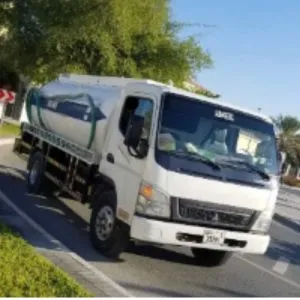
- Service Type : Water Supply
- Available Capacities : 1000 to 20000 Gallons
View more...
Sweet Water Tanker Supplier
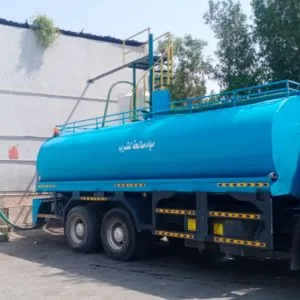
- Usage : Drinking and Cooking
- Safety : Safe For Human Consumption
View more...
All Water Supply
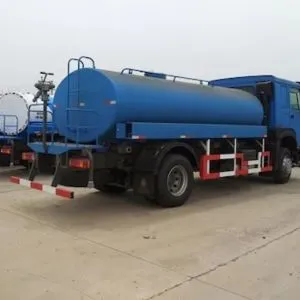
- Usage : Swimming Pools And Construction Sites
- Quality Assurance : Lab-tested daily
View more...
Ahmad Abdlla Alfalasi Transport LLC
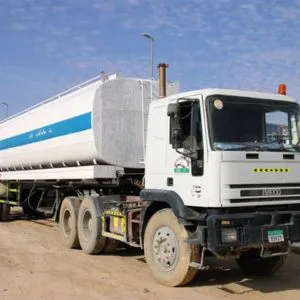
- Usage : Construction, Hotels, Pools, Restaurants
- Capacity : 1000 to 10,000 Gallons
View more...
Clean Environmental Services
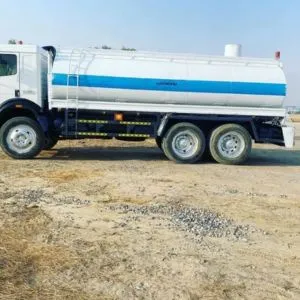
- Service Type : Water Supply
- Capacities : 1000 to 20000 Gallons
View more...
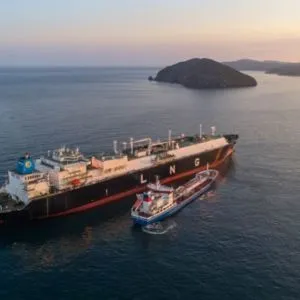
- Usage : Drinking
- Water Quality : High-quality fresh water
View more...
Hasaco Ship Chandlers LLC
Other Categories
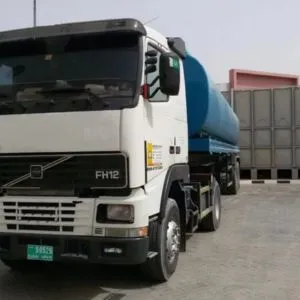
- Usage : Drinking and Cooking
- Water Type : Clean water
View more...
Sweet And Salt Water Tanker Supplier
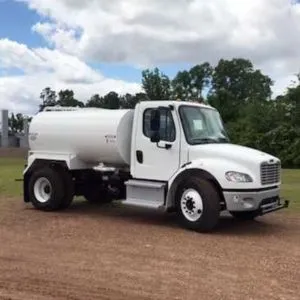
- Primary Use : Construction, swimming pools
- Water Quality : Maintains Natural Quality
View more...
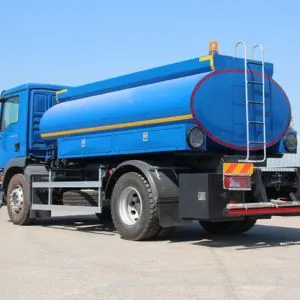
- Service : Sweet Water
- Certification : Dubai Municipality certified
View more...
Water Supply Dubai
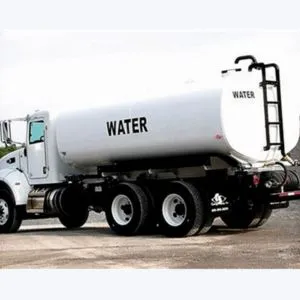
- Storage Capacity : Large Scale
- Application : Residential, Commercial, Industrial
View more...
Dubai Sweet Water Supplier
An easy way to post your sourcing requests and get quotes.
- One request, multiple quotes
- Verified suppliers matching
- Quotes comparison and sample request
Sweet Water Supply in UAE
Sweet water, also known as freshwater, is essential for human survival as well as the smooth operation of any urban environment. It is a useful resource for both homes and businesses in UAE since it may be utilized for drinking, cooking, sanitation, industrial activities, and irrigation.
The exponential growth of UAE throughout the years has resulted in a rise in demand for sweet water supply services. With the growing population and industrial sectors, the city needs a reliable sweet water tanker supply to keep up.
Benefits of Sweet Water in UAE
Freshwater, sometimes known as sweet water, is necessary for business, agriculture, and human health. Sweet water tanker supplier in UAE makes sure there is a consistent supply of sweet water of the highest caliber in UAE for all purposes. The top advantages of sweet water are listed below:
Important to Drink and Stay Hydrated
Sweet water is essential for drinking, staying hydrated, and preserving good health. Sufficient hydration is essential for maintaining body warmth, facilitating digestion, and facilitating the elimination of waste.
Encourages the Practice of Agriculture
Sweet water supply agents are essential to agriculture in order to irrigate crops. It guarantees durable plant growth, which improves yields and produces higher-quality food. Having a steady supply of water is essential for food security.
Essential for Construction
Sweet water is needed on construction sites to mix concrete and other components. It makes buildings stronger and more resilient, which makes them safer.
Encourages Sanitation and Hygiene
Sweet water is essential for good hygiene since it makes it possible to clean, bathe, and wash your hands frequently. It preserves general public health and lowers the danger of illnesses.
Improving Industrial Procedures
Sweet water is used in industrial, cleaning, and cooling activities. It guarantees effective operations and aids in equipment maintenance, cutting down on downtime.
Keeps Pools in Good Condition
In order to fill and maintain swimming pools, hygienic sweet water supply is essential. It ensures swimmer safety by offering a clean, safe environment for leisure activities.
Essential to Systems of Drinking Water
Sweet water is essential to municipal pure sweet drinking water supply. To guarantee that people have access to clean drinking water, it is treated before being supplied to homes and businesses through sweet water tanker supply.
Water Resources in UAE
There are two primary types of water resources in UAE: conventional resources, which include groundwater (deep and shallow aquifers), surface water (including aflaj water systems, springs, and dams), and non-conventional resources, which include desalinated water, treated wastewater, and cloud seeding.
Conventional resources
Surface Water
The surface water is negligible and consists of spring water, some very little streams, floodwater, and water held in dams. When there are land slopes, these are either contained or flow, and they are refilled by precipitation or groundwater.
UAE is situated in a dry belt zone, which means that rainfall is scarce and floodwaters seep into the earth, particularly in sedimentary regions. As a result, even though the majority of it evaporates due to high evaporation, dams are essential for collecting rainfall, storing surface water behind them, and supplying the aquifer.
Groundwater
The primary natural water supply is groundwater. Only 3 percent, or around 20 billion cubic meters (BCM), of the 640 billion BCM total amount of groundwater is fresh.
Groundwater is a vital and valuable resource in the desert UAE for social and economic development, environmental preservation, and municipal and rural supplies. However, the majority of groundwater utilized in UAE is brackish. Shallow aquifers, which are renewable, and deep aquifers, which are non-renewable, are the two categories of groundwater resources.
Non-conventional water sources
Desalination
Domestic water supplies mostly employ desalinated water (about 99 percent), either directly or in combination with groundwater, to meet the qualitative and quantitative requirements for pure sweet drinking water supply standards.
UAE possesses the world's highest desalination capacity, second only to Saudi Arabia. Only two desalination facilities employ reverse osmosis (RO) technology; the majority of plants use co-generation multi-stage flash (MSF) or multiple-effect distillation (MED). UAE has 33 significant water desalination plants as of 2015.
Since industries have been ready to pay more for water than homes and farms have, the availability of desalinated water at relatively low costs may also be an appealing way to address industrial water demand.
Treated wastewater
One of the most significant solutions to partially meet the current water requirements and reduce the long-term supply-demand mismatch is treated wastewater. Large volumes of treated wastewater are now available due to the completion of wastewater treatment plants and the growth of urban sewage networks. Wastewater, irrespective of its intended purpose, undergoes full or partial treatment due to environmental concerns.
UAE currently runs advanced medical centers equipped with advanced and tertiary treatment capabilities. The majority of uses for sweet water supply service are in urban areas, like garden irrigation and roadside landscaping.
Cloud seeding
One of the MENA region's leaders in artificial rainmaking and cloud seeding is UAE. Its 2015 cloud seeding efforts cost 2 million dirhams, or around $550,000.(8)
To increase the level of the local aquifers and reservoirs, cloud seeding is typically conducted over the eastern mountain ranges that border Oman. On the other hand, there has also been some cloud seeding over the cities. The effectiveness of this technology in boosting precipitation has been demonstrated, but a thorough cost-benefit analysis must be performed to make sure that it is a more practical source of water than alternatives like desalination or even water conservation initiatives.
Sweet Water Delivery Services in UAE
Sweet water delivery services play a crucial role in ensuring a consistent supply of drinkable water, and sweet water delivery services are essential. These services are supplied by specialized businesses that deliver water to their customers using tankers.
- • Residential Water Delivery: Make sure you have enough sweet water on hand to meet all of your demands. We bring clean, pure water to your door for drinking, cooking, cleaning, and gardening.
- • Commercial Water Delivery: It depends on effective transportation services to provide sweet water, guaranteeing freshwater distribution that is prompt and dependable.Companies of many kinds offer dependable water supply to building sites, lodging facilities, dining establishments, and more. Ensure dependable service to sustain operations without interruption.
- • Event Water Supply: Organizing a sizable get-together or event? Customized water supply options are essential to ensure your visitors stay hydrated and satisfied. You can take care of the arrangements, guaranteeing a smooth supply throughout your event.
- • Construction Sites: Large amounts of pure sweet water supply are needed for construction projects for a variety of tasks, including cleaning, curing, and mixing concrete.Sweet water supply tankers carrying sweet water guarantee a steady supply of water to building sites.
- • Swimming Pools: It is critical to maintain the water quality of swimming pools for both health and safety reasons. High-quality water that has been specially treated for swimming pools is supplied by sweet water supply tankers.
Challenges to Sweet Water Supply in UAE
UAE faces significant challenges in securing a reliable sweet water supply. With its arid climate, scarce freshwater resources, and high consumption rates, the country deals with water scarcity, quality issues, climate change impacts, and unsustainable practices.
Scarcity of water
UAE has a serious problem with water scarcity. Investigating other water supply options is essential due to the dry climate and scarcity of freshwater resources. Natural freshwater resources like rivers and lakes are practically nonexistent in UAE due to the region's exceptionally low annual rainfall of only 100 mm. For 51% of its freshwater supply, UAE mostly depends on groundwater. Due to saltwater intrusion from the coast, over-extraction has exhausted these resources and decreased water quality.
Water quality issue
The quality of surface and subsurface water sources has deteriorated due to saltwater intrusion caused by excessive groundwater extraction, particularly in coastal areas. The pollution of water sources by urban and industrial operations puts further pressure on the supply of clean, drinkable water.
Climate Change
Due to rising temperatures and decreasing precipitation, which is already sparse in the area, climate change presents a long-term hazard. This increases the rate at which current water resources evaporate and complicates the process of recharging groundwater supplies. Sea level rise could have an impact on the salinity levels of intake waters and raise the cost of desalination for coastal desalination facilities.
High Cost of Production
Although desalination contributes to UAE's water supply, its cost is high. Desalination plant construction, upkeep, and operation come at a significant expense. To deliver water to both urban and rural areas, UAE must also make significant investments in water distribution infrastructure. Water is substantially subsidized by the government, which encourages wasteful behavior by consumers who do not cover the actual cost of producing water.
Lack of sustainable practices
Despite its water shortage, UAE has one of the highest rates of water usage per person in the world. The scarce water resources are strained by excessive consumption in homes, businesses, and agriculture. There is a great deal of water waste in agriculture since traditional irrigation techniques like flood irrigation are still in use.
Technological Solutions for Sweet Water Supply
Desalination Plants
UAE has made significant investments in desalination facilities, which turn salt water into fresh, potable water. Modern infrastructure like these provide a steady supply of delicious water even in the dry environs of the city.
Water Recycling
UAE has introduced water recycling programs to further optimize water usage. After being cleaned and processed, wastewater can be used for industrial processes, cooling systems, and irrigation that doesn't require potable water.
Automated Variable Filtration
A relatively straightforward but efficient method of purifying water is called automatic variable filtration, or AVF. It functions by cleaning an upward flow of influent through a downward flow of filter media. The fact that the water doesn't need further filtering or cleaning is one of the biggest advantages.
The AVF approach is an economical and energy-efficient technology because it doesn't require any power or moving parts. The technology can be used for pre-filtration and desalination, as well as for the treatment and reuse of wastewater and municipal drinking water.
Blockchain
The water supply industry has the chance to improve security and transparency due to blockchain technology. The integrity of the data is guaranteed by the tamper-proof data storage and the traceability of transactions. This is especially crucial for the billing of water use and the recording of water quality.
Environmental and Sustainability Aspects
To meet a specific requirement, sustainable water systems should supply enough water in the right amount and quality without jeopardizing their potential to do so in the future. While water usage may not be explicitly included in sustainable development, systems where water use has historically been necessary are included. Waterless car washes and toilets are two examples of products whose use contributes to ensuring a sustainable water supply and reducing water stress.
Reducing Water footprint
UAE's initiatives to cut down on water waste demonstrate its dedication to sustainability. To effectively monitor and control water consumption, technologies like smart meters and leak detection systems are used.
Promoting Awareness
The government, together with other groups, aggressively encourages citizens and companies to participate in water conservation awareness initiatives. This encourages the community to use water responsibly.
Renewable energy sources
Sustainability is achieved by incorporating renewable energy sources into the water supply. CO2 emissions and energy consumption can be greatly decreased by using solar-powered water treatment equipment and pumps. By using solar energy to pump and purify water, these technologies offer a more economical and sustainable energy source than conventional fossil fuels.
These systems can also be utilized in isolated or off-grid locations, enhancing the water supply and fostering greater independence among the local populace. As less energy is needed for the pumping and treatment procedures, these actions can, over time, save operational costs for the water supply while also protecting the environment.
Efficiency and conservation of water
Water losses may be minimized and usage optimized by utilizing sophisticated technologies like smart water meters and leak detection systems. These devices are especially significant since they allow for more precise control over water usage. Users may better understand and control their consumption with the help of smart water meters, which provide accurate consumption statistics in real-time. On the other hand, leak detection systems can assist stop needless waste by using advanced sensor technology to find even the smallest leaks in water supply networks. When combined, these technologies serve to guarantee the long-term sustainability of the water supply and improve the efficiency of water usage.
Recycle and reuse
Two important ways to lower the demand for freshwater are to reuse wastewater and use rainwater. Reusing wastewater for irrigation, industrial activities, or even pure sweet drinking water supply is made possible by modern treatment technologies including multi-layer filtration systems and sophisticated biological treatment procedures. Reducing the demand for fresh water and the burden on municipal water supplies can also be achieved by utilizing rainwater through collection systems and storage options. Closing the water cycle and lowering reliance on outside water supplies are two benefits of these approaches, which also support sustainable water management.
Find the best sweet water supply companies in UAE on TradersFind
TradersFind is a reliable platform for those who are looking for sweet water supply in UAE. You can find different verified sweet water tanker supplier in UAE.You can get the complete details such as contact details, location, or WhatsApp number. Through that, you can get in touch with manufacturers across UAE . In short, TradersFind is the right platform for you to connect with the top sweet water supply companies in UAE without any difficulty.
Frequently Asked Questions (FAQs)
Q1: How does UAE resolve its water issue?
A1: Desalination Plants: Water resources in UAE are scarce. The primary method for turning saltwater into drinkable water is thermal desalination.
Q2: What is the main source of water in UAE?
A2: Groundwater and desalinated seawater are the two sources of water in UAE. In Al Ain and Liwa, groundwater is utilized for agriculture, although desalinated seawater is the only source of drinking water used throughout the Emirates.
Q3: How much water does UAE use per person?
A3: UAE uses 550 liters of water per person per day, according to the Ministry of Climate Change and Environment.
Q4: What is the demand of water in UAE?
A4: UAE's total annual water demand is predicted to double by 2030, from 4.5 billion cubic meters (BCM) to between 9 and 10 BCM, if existing patterns and rates persist.
Q5: What are the challenges of water in UAE?
A5: UAE's growing population, rising standard of life, and expansion of irrigated agriculture are the main reasons of water scarcity. A significant threat to sustainable development in this dry area is water stress and scarcity.
Q6: How does UAE conserve water?
A6: The government has implemented new, more effective irrigation methods, like drip irrigation, which uses 35% less water than conventional systems. The nation has also shifted away from water-intensive crops and is testing the use of wastewater for irrigation.
Q7: What is the composition of sweet water?
A7: Glycerol, water, and sugars make up sweetwater in most cases. About 17.4% of the residual sugar in the sweetwater was sucrose, with 0.6 wt%, 0.4 wt%, and 10.3 wt% of glucose, fructose, and glycerol following.
Q8: What is sweet water used for?
A8: The primary uses of sweet water are in construction projects, residential complexes, restaurants, swimming pools, and places without pipelines.
Q9: What is the difference between sweet water and saltwater?
A9: Less than 0.5 percent of freshwater is salty. Between 0.5% and 3% of water is brackish. Seawater contains more than 3% salt.
Q10: How are UAE's water innovations helping to build a more sustainable future?
A10: Several important projects are in different phases of development, such as creative methods for producing food in arid regions, increasing desalination and utilizing its byproducts, and improving cloud-seeding techniques to produce rain where it is needed.
Copyright © 2024 Interconnect Marketing Management L.L.C All rights reserved.















